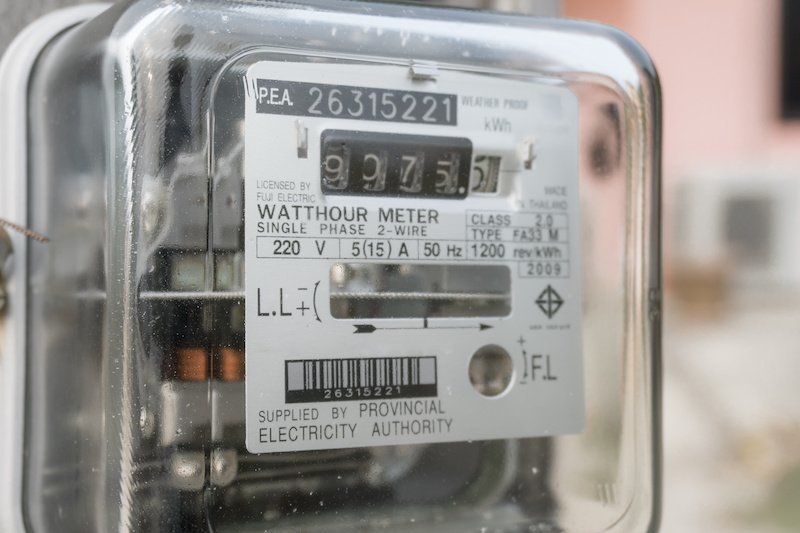Nashville Cost of Living: Nashville, TN Living Expenses Guide
Posted by Gary Ashton on Wednesday, January 4th, 2023 at 8:32am.

The city of Nashville is the capital and most populous city in Tennessee and the county seat of Davidson County. The city's population is just over 690,000, while the greater metro area of Nashville, which includes 13 surrounding counties, has a population of nearly two million.
Known as Music City, Nashville has long been a major center for the music industry, particularly country music, and the city is even home to the legendary Grand Ole Opry. Nashville is a major music recording and production center, second only to New York City. The music industry is also behind the city's thriving tourism industry, though Nashville's largest industry is healthcare.
The cost of living in Nashville is 101.4, putting it slightly higher than the national average and about 14% higher than the Tennessee state average. Interested in moving to Nashville? Before you start packing, read on to make sure you know exactly what goes into the cost of living in this awesome city.
Table of Contents
Housing in Nashville
Nashville's cost of housing index is about 117, putting it 17% higher than the national average. In addition to being higher than the national average, Nashville's cost of housing index is higher than the state average of 80%, mostly in part due to all the amenities offered in the city.
Comparison of Median Housing Costs in Nashville
The median list price for all homes in Nashville, including single-family homes, condos, and townhomes, is around $450,000. However, it will be more expensive in popular luxury Nashville neighborhoods. For comparison, in nearby Murfreesboro, a suburb of Nashville, the median list price for homes is about $425,000, while in Franklin, the median is higher at around $750,000.
If you're interested in buying a home in Nashville,
The Ashton Real Estate Group can help!
Median Home Price
The median list price for single-family homes in Nashville is around $475,000, somewhat higher than the average for all homes. By contrast, the median list price for a Nashville condo is around $350,000.
Median list prices for homes in Nashville vary, depending on location. The median list price in Green Hills is over $1 million, while the Inglewood neighborhood's median list price is about $440,000. Urbandale Nations neighborhood has a median list price of around $600,000, while the median list price in the Western Meade neighborhood is roughly $800,000.
Median Rent
The current average rent for a studio or one-bedroom apartment is around $1,800 per month, and a two-bedroom apartment will cost around $1,900. The average prices for three-bedroom and four-bedroom apartments and rental properties are about $2,300 and $3,000, respectively.
Rent prices for the Una neighborhood apartments average $1,400, while the average is $2,300 for Burton Valley neighborhood apartments. Apartments in the Oak Hill neighborhood are averaging $1,900.
Utilities
 The cost of utilities in Nashville is slightly below the U.S. average, with a cost index of 99.3. The utility cost index for all of Tennessee is slightly lower than Nashville, at 96.7%.
The cost of utilities in Nashville is slightly below the U.S. average, with a cost index of 99.3. The utility cost index for all of Tennessee is slightly lower than Nashville, at 96.7%.
Nashville residents spend about 6.3% of their monthly income on utilities. Cost of utilities such as electricity, heating, cooling, water, and garbage averages about $173 per month for an apartment that is 915 square feet.
Internet service averages about $70 a month, while mobile phone service for unlimited talk, text, and data runs about $45 a month.
The average cost of homeowner's insurance in Nashville varies by provider, but homeowners can expect to pay $1,402–1,577 per year. The average cost of renter's insurance in Tennessee is about $18 per month or $218 per year. This is slightly higher than the average across the country, about $16 per month or $192 per year.
Food in Nashville
Food plays a small role in the cost of living in Nashville. Groceries are only a small piece of the cost of living in Nashville, and the amount spent eating out can be easily controlled by each household.
Nashville Average Food Costs
The average Nashville resident can expect to pay $216 per month for food, including groceries and an occasional restaurant meal.
Groceries
Groceries in Nashville are about 2% higher than the national average. Tennessee as a whole has a groceries index under the national average, at 95.4. The national average monthly cost of groceries ranges between $165 and $430, which means Nashville residents should expect to pay between $168.30 and $438.60.
Residents have found that the grocery stores with the best value in Nashville include H.G. Hill Urban Market, United Grocery Outlet, ALDI, Piggly Wiggly, and Publix.
Restaurants
 As with any city, the cost of dining out in Nashville varies depending on the restaurant. A combo meal at a fast-food restaurant will be about $9.50, while a meal at an inexpensive sit-down restaurant will run about $15 without the tip. A meal for two at a mid-range restaurant will cost right around $55 before the tip.
As with any city, the cost of dining out in Nashville varies depending on the restaurant. A combo meal at a fast-food restaurant will be about $9.50, while a meal at an inexpensive sit-down restaurant will run about $15 without the tip. A meal for two at a mid-range restaurant will cost right around $55 before the tip.
A pint draught of a domestic beer will cost about $5, while a smaller 12 oz. A bottle of imported beer is likely to cost around $7.
Coffee connoisseurs can expect to pay $5.30 for a regular cappuccino at a coffee shop. Colas cost about $2.30 for a 12 oz. Bottle, while water is about $1.50 for the same size bottle.
Transportation in Nashville
Tennessee auto insurance premiums average $1,315, which is lower than the national average of $1,510. However, the average auto insurance premium in Nashville is higher than both the state and national average at $1,885. The average price of gas is about $2.05 for regular unleaded.
Nashville Transit Costs Comparison
WeGo Public Transit is the primary public transportation provider covering the Nashville metro area. A two-hour pass is $2, but children under four ride for free when with a paying passenger, and both seniors ages 65 and older and youths ages 19 and younger pay $1. There are also all-day passes available for $4 and 31-day passes available for $65.
For commuters, the WeGo Star train can be a better way to get around. The WeGo Star Train makes rounds between seven stations, which can be more efficient for those who work a greater distance from where they live. The price per ticket will vary depending on where the ticket is purchased, but purchasing tickets in advance will always offer a discounted price. Passengers can still purchase tickets at the platform, however.
Nashville Healthcare
 The average cost of a health insurance plan in Tennessee is about $500 per month for a 40-year-old. The cost of healthcare in Nashville is roughly the same as the state and national average.
The average cost of a health insurance plan in Tennessee is about $500 per month for a 40-year-old. The cost of healthcare in Nashville is roughly the same as the state and national average.
The city has about 347 physicians per 100,000 population, considerably more than the national average of 210 physicians per 100,000 people.
The average cost of a doctor's visit is $95. A visit to the dentist costs $78 on average, while a trip to the optometrist will cost $85. This compares to the national average of $115 for a doctor's visit, $98 for a visit to the dentist, and $106 for a visit to the optometrist. A standard vet visit for a dog or cat will cost around $54, but additional services like vaccinations and tests will increase the bill.
There are eight hospitals within the city of Nashville. These include Baptist Hospital, Metro National General Hospital, and Vanderbilt University Hospital.
Nashville Childcare
There are about 2,300 childcare agencies in Nashville. The average cost of daycare is $700 per month for full-time care or $8,400 per year. The cost of childcare goes up depending on the age of the child—for an infant, the monthly cost can be over $900. Childcare assistance is available based on income and other requirements. Some daycare centers have adjustable rates based on household income.
Nashville Average Monthly Childcare Costs
The typical cost of hiring a nanny in Nashville is about $16 per hour. However, rates vary depending on the nanny's experience, the number of children, and their ages.
Nashville Entertainment
 Creativity is at the heart of Nashville, with no shortage of things to do or see. From music, culture, and the arts to sporting events, shopping, and nightlife, plenty of golf courses, visitors and residents alike have plenty to choose from in Music City.
Creativity is at the heart of Nashville, with no shortage of things to do or see. From music, culture, and the arts to sporting events, shopping, and nightlife, plenty of golf courses, visitors and residents alike have plenty to choose from in Music City.
The Country Music Hall of Fame is located in downtown Nashville and dubbed the "Smithsonian of Country Music." Ticket prices vary depending on the tour experience chosen, but general admission starts at $27.95 for adults and $17.95 for children ages 6 to 12.
The Grand Ole Opry features live shows of country stars and up-and-coming talent. Show tickets depend on where you sit and can range from roughly $70 to over $100.
The Belcourt Theatre screens independent new releases and documentaries, as well as foreign and classic films. General admission tickets are $12.50 for adults.
Tennessee is known for its barbecue, and Nashville's restaurants reflect this local favorite. One of the best places to get barbecue in the entire city is Peg Leg Porker, where you can get a rack of ribs for $28.95 with a choice of two sides.
Salary in Nashville
The average income of a Nashville resident is $25,000 per year, and the median household income is around $45,000.The national average is $28,000, and the national median for a household is $53,482.
Nashville's labor force growth is ranked second in the nation, at 3.2%, and the labor force participation for the city is ranked fourth, at 70.4%.
Monthly Expense Percentages Based on Average Nashville Salary
Leading industries in Nashville include healthcare management, automobile production, finance, higher education, insurance, music production, printing and publishing, technology, manufacturing, and tourism.
In recent years, Nashville has made many lists and rankings related to its job market business environment, from Best Cities for Young Workers to Small Business Friendliness. Employment within the metro area has soared 20% since 2009, pushing Nashville's economy past the $100 billion mark.
Top employers are Vanderbilt University and Medical Center, Nissan North America, HCA Holdings, Inc., Saint Thomas Health Services, Community Health Systems, Randstad, Asurion, The Kroger Company, National Healthcare Corporation, and Shoney's.
The Tennessee minimum wage is $7.25, which is the same as the national minimum. The unemployment rate in Nashville is 3.2%, slightly lower than the national rate of 3.7%.
There is no income tax on wages in Tennessee.
Find Your Home in Nashville
Nashville is known as Music City for a good reason, but the city is more than just the home of country music. It is one of the fastest-growing cities in the nation, thanks to a favorable tax system, moderate climate, and thriving healthcare, technology manufacturing, and other top industries.
Nashville is a fantastic city to call home, but no decision should be made without proper consideration. Nashville is a diverse city, and one neighborhood can feel completely different from another. Before making plans to move, make sure you have done all your research and consult your Nashville real estate agent to find a perfect home.
If the opportunities of Nashville excite you, contact The Ashton Real Estate Group of RE/MAX Advantage with Nashville's MLS at (615) 603-3602 to get in touch with local real estate agents who can help find the perfect Nashville home for you today.
Read Our Cost of LIving Guides For Each City Below

Gary Ashton
The Ashton Real Estate Group of RE/MAX Advantage
The #1 RE/MAX team in the World!
